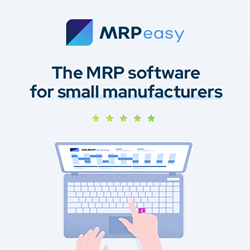Rocket Lab Begins Installation of Large Carbon Composite Rocket-Building Machine
The 90-tonne Automated Fiber Placement (AFP) machine has been custom-designed and built for Rocket Lab and is expected to save around 150,000 manufacturing hours in the Neutron rocket’s production process.
Rocket Lab USA, Inc. (Nasdaq: RKLB) ("Rocket Lab" or "the Company"), a global leader in launch services and space systems, today announced it has begun installation of the largest automated fiber placement (AFP) machine of its kind into the Company's Neutron rocket production line in Middle River, MD. The AFP machine will enable Rocket Lab to automate production of the largest carbon composite rocket structures in history.
The custom-built 99 ton (90 tonne), 39 ft tall (12-meter) robotic machine, American-made by Electroimpact in Washington, has just completed final acceptance testing with the manufacturer and installation has begun at Rocket Lab's Space Structures Complex in Middle River, Maryland. The new machine will automate the production of all large composite structures of the Neutron launch vehicle including the panels that make up the 91 ft (28 meter) length interstage and fairing, 22.9 ft (7 meter) diameter first stage, and the 16.4 ft (5 meter) diameter second stage tank.
The autonomous machine can move up to 98 ft (30 meters) in length and lay down continuous carbon fiber composite at a rate of 328 ft (100 meters) per minute. The AFP machine also has a fully automated real-time inspection system that hunts for miniscule defects throughout the laminated carbon composite and alerts the machine operator of any issues before the machine begins laying down the next layer, providing additional assurance that these critical structures of the launch vehicle meet Rocket Lab's high-quality standards required for reusable Neutron launches.
As Neutron's carbon composite structures move into full-scale production, this autonomous machine is expected to introduce significant time-savings of 150,000+ manufacturing hours into the production process.
Rocket Lab founder and CEO, Sir Peter Beck, says: "As we build the world's largest carbon composite rocket, it makes sense that we require a world-first carbon composite fiber placement machine. We're combining our proprietary flight-proven carbon composite technology, additive manufacturing, and autonomous robotics to design and build large-scale aerospace components at a pace that will support not only Neutron's launch cadence, but support Electron and carbon composites structures for our spacecraft customers too. We worked closely with our excellent partners at Electroimpact to create this robot and we're thrilled with the results. It's an innovative machine producing a next-generation rocket from one of the birthplaces of the aerospace industry in Baltimore, and we can't wait to see its first carbon composite printed panels come off the production line soon."
The AFP machine will also be leveraged to print smaller carbon composite Neutron structures, first stages of Rocket Lab's Electron launch vehicle, and other flight-proven carbon composite structures for space including spacecraft structural panels and assemblies, solar panel substrates, carbon composite tanks and primary structures, and custom projects for the aerospace industry.
About Neutron
Neutron is the new medium-lift reusable launch vehicle by Rocket Lab. Capable of carrying up to 13,000 kg to low Earth orbit, Neutron is designed to deliver constellations of satellites to space at once, important national security missions, and human exploration beyond Earth's orbit. Neutron will be the world's first medium-lift carbon composite rocket, building off of Rocket Lab's proprietary and flight-proven techniques utilized across 50+ launches of its Electron carbon composite small orbital launch vehicle. Powering Neutron is Rocket Lab's new 3D printed reusable rocket engine Archimedes, an oxygen-rich staged combustion engine using liquid oxygen and methane propellants that is designed for rapid reusability, deep throttle ability for multiple engine burns in space, and for propulsive landings when returning to the launch site. Neutron will launch and land at its own dedicated launch and test range within Rocket Lab Launch Complex 3 at the Mid-Atlantic Regional Spaceport on Wallops Island, Virginia, starting in 2025. For more information, visit https://www.rocketlabusa.com/launch/neutron/
+ About Rocket Lab
Founded in 2006, Rocket Lab is an end-to-end space company with an established track record of mission success. We deliver reliable launch services, satellite manufacture, spacecraft components, and on-orbit management solutions that make it faster, easier, and more affordable to access space. Headquartered in Long Beach, California, Rocket Lab designs and manufactures the Electron small orbital launch vehicle, our family of spacecraft platforms, and the Company is developing the large Neutron launch vehicle for constellation deployment. Since its first orbital launch in January 2018, Rocket Lab's Electron launch vehicle has become the second most frequently launched U.S. rocket annually and has delivered 191 satellites to orbit for private and public sector organizations, enabling operations in national security, scientific research, space debris mitigation, Earth observation, climate monitoring, and communications. Rocket Lab spacecraft have been selected to support NASA missions to the Moon and Mars, as well as the first private commercial mission to Venus. Rocket Lab has three launch pads at two launch sites, including two launch pads at a private orbital launch site located in New Zealand and a third launch pad in Virginia. To learn more, visit www.rocketlabusa.com
Featured Product

